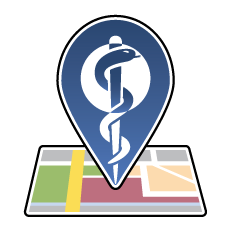Social: #StudentSleepWeek
Twitter: @AASMorg
Facebook: @americanacademyofsleepmedicine
Website: http://sleepeducation.org/student-sleep-health-week
The first Student Sleep Health Week will take place Sept. 14-20, 2020. It is organized by the American Academy of Sleep Medicine (AASM) to drive awareness of the importance of healthy sleep for students of all ages to learn, grow and thrive.
About Student Sleep Health Week
The American Academy of Sleep Medicine is organizing the first-ever Student Sleep Health Week, Sept. 14-20, 2020, to encourage students to get the healthy sleep they need to excel this school year. The AASM will be hosting online events throughout the week with the hashtag #StudentSleepWeek. Join the conversation and learn all about the importance of sleep for students, including healthy sleep tips and more. Supporting partners include: American School Counselor Association, American School Health Association, National Association of School Nurses, National PTA, National Safety Council, Project Sleep, Society for Health and Physical Educators and Sleep Research Society.
About the American Academy of Sleep Medicine
Established in 1975, the American Academy of Sleep Medicine (AASM) is advancing sleep care and enhancing sleep health to improve lives. The AASM has a combined membership of 11,000 accredited member sleep centers and individual members, including physicians, scientists and other health care professionals (https://aasm.org/).
Why does sleep matter?
Getting enough sleep is critical to the health and well-being of students of all ages. Sufficient sleep helps students:
Excel in the classroom by maximizing attention, memory and learning abilities
Perform better in sports by being faster, stronger and more accurate
Feel positive and have a more optimistic attitude toward life
Look their best and maintain a healthy weight
Have fun and enjoy life by making better decisions and staying safe
The benefits of healthy sleep require not only adequate sleep duration, but also appropriate timing, daily regularity, good sleep quality and the absence of sleep disorders.
When students don’t get the recommended hours of healthy sleep on a regular basis, it can lead to:
Behavior and learning problems
Hypertension
Diabetes
Obesity
Mental health problems
How much sleep do students need?
The AASM recommends:
Elementary School: Children 6-12 years of age should sleep nine to 12 hours per 24 hours on a regular basis to promote optimal health.
Middle and High School: Teenagers 13-18 years of age should sleep eight to 10 hours per 24 hours on a regular basis to promote optimal health.
Use the AASM’s Bedtime Calculator to identify the appropriate bedtime by age and wake time, available at sleepeducation.org/bedtime.
How can students improve their sleep?
The back-to-school transition is an ideal time to get back on track with your sleep schedule.
Begin to transition to a more structured sleep schedule at least two weeks before school starts.
Gradually shift bedtime at least 15 minutes earlier each night and wake time 15 minutes earlier each morning until on the right schedule.
Create a quiet, cool sleep environment.
Develop a relaxing nightly routine, which may include reading, journaling or taking a warm bath or shower.
Restrict screen time before bed.
Maintain a consistent sleep schedule, whether classes are held in-person, online or in a hybrid format, including getting up and going to bed at regular times.
What time should school start?
According to the AASM, more than half of Americans (54%) say that school starts too early in the morning for middle school and high school students. In addition, 90% of parents say that early school start times have an impact on their child/teen’s ability to get enough sleep on school nights.
The AASM recommends a national standard of middle school and high school start times of 8:30 AM or later.
Why? During adolescence, internal circadian rhythms and biological sleep drive change to result in later sleep and wake times. As a result of these changes, early middle school and high school start times can:
Curtail sleep
Hamper a student’s preparedness to learn
Negatively impact physical and mental health
Impair driving safety
Delaying school start times positively impacts student achievement, health and safety, and support is needed by educators to ensure that extracurricular activities don’t interfere with students’ need for healthy sleep.
About Student Sleep Health Week
The American Academy of Sleep Medicine is conducting the first-ever Student Sleep Health Week (SSHW), from Sept. 14-20, 2020, to help students get the healthy sleep they need to excel this school year. Learn more about the supporting partners:
Whether you’re a student, parent, caretaker or educator, you play a key role in ensuring all students have the opportunity to get enough sleep and develop healthy sleep habits that will last a lifetime. Educators can visit http://school.sleepeducation.com/ to access K-12 lesson plans and activities to generate interest in the study of sleep medicine and to raise awareness of sleep disorders.
Source: 2020 National Health Observances, National Health Information Center, Office of Disease Prevention and Health Promotion, U.S. Department of Health and Human Services, Washington, DC.

